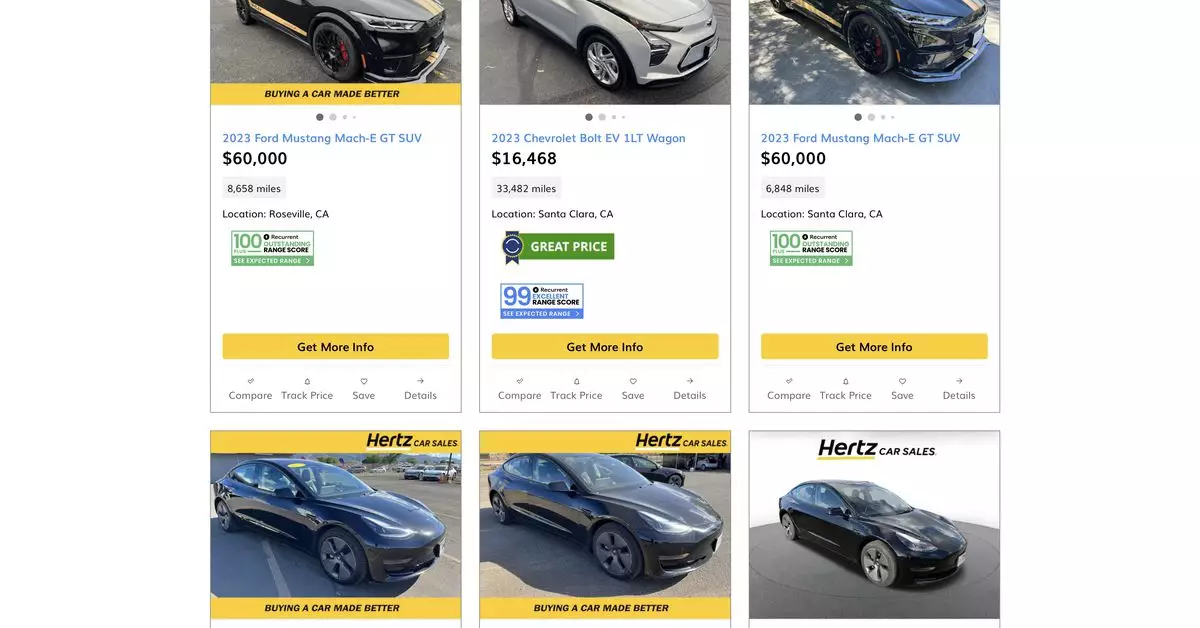In a move that has caught the attention of both car renters and the larger automotive market, Hertz is reportedly reaching out to electric vehicle (EV) renters with enticing offers to purchase the very cars they’ve rented. This initiative seems to cater to a growing interest in EV ownership, particularly as the automotive landscape continues to evolve towards more sustainable alternatives. With offers like a 2023 Tesla Model 3 priced at $17,913 and comparable deals on vehicles like the Chevy Bolt and Polestar 2, Hertz is not just trying to boost sales; it is redefining its business strategy in the context of current market demands.
Feedback from consumers regarding these offers has been interesting. One Reddit user highlighted the legitimacy of the pricing—having driven the car for around 30,000 miles, which is relatively low compared to other options available on the Hertz Car Sales site. This presents a compelling value proposition for those who may have developed a connection to the rented vehicle and are keen on seamless transitions into ownership. For instance, while a 2023 Chevy Bolt was presented at $18,442, a Polestar 2 was shown at $28,500. These figures align closely with market trends, thus positioning Hertz as a competitive player in the used EV market.
It’s worth noting that these used cars come with a limited powertrain warranty—12 months or 12,000 miles—and a buy-back guarantee that offers customers peace of mind should they change their minds shortly after the purchase. Hertz’s communications director, Jamie Line, emphasized that this strategy is not just a fleeting initiative but a tactical approach to engage customers who are already in the market for EVs. This dual penetration—both as a rental service and a car sales platform—creates a synergy that aligns with evolving consumer preferences in the automotive sector.
However, this strategy follows a backdrop of previous challenges for Hertz regarding their electrification efforts. The company had initially set ambitious goals to build a fleet of electric vehicles; structural setbacks such as low customer demand and repair challenges with models like the Tesla Model 3 forced them to recalibrate their plans. In fact, earlier in the year, Hertz ceased acquiring vehicles from Polestar and planned to offload 30,000 Teslas from their rental fleet. These setbacks could have steered the company towards more innovative, customer-centered strategies meant to adapt to market realities rather than pursuing a one-size-fits-all solution.
As the automotive industry lurches towards a more mainstream acceptance of electric vehicles, Hertz’s proactive approach to connecting customers with purchase opportunities can potentially nurture a new customer base—a base that is increasingly aware of and interested in electric vehicle ownership. This shift not only recognizes current consumer sentiment but also challenges conventional rental business models, putting Hertz in a forward-thinking position as it navigates the complexities of the evolving automotive landscape. In encouraging more permanent ownership of rental EVs, Hertz is contributing to a broader movement towards sustainability, driving both its brand loyalty and the shift in consumer behavior.


Leave a Reply